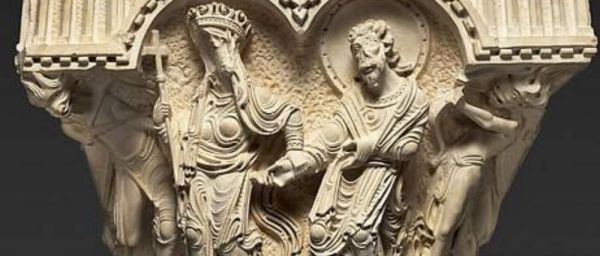(Lk 12:39-48)
«You also be ready, for in the hour you do not believe the Son of Man is coming» (Lk 12:40).
Jesus pulls the ears of those in the House, not out of self-denial: it is neither love nor freedom not to be able to understand in which direction to go, not to have a goal that conveys meaning to our pilgrimage in search.
Already in the communities of the early centuries the idea of the end of the world and the immediate subsequent 'return' of the Risen One to set things right - like any Messiah - was alive.
So some were no longer committed. Others remained with their noses in the air, scanning the heavens.
But the Coming of Christ is always imminent, and the Judgement on the things of the world has already been pronounced on the Cross.
In his Spirit who makes all things new, and in his intimates, the Lord has never moved (elsewhere; or on high) [cf. Mt 28:20].
The final phase of history begins precisely from this seed of Faith not alienated, of Person not repressed, and of alternative society; but the history to be written is the task of the Church.
The new heaven and the new earth of the Divinising Presence is already palpitating. In this way, He is beside us as we strive for fulfilment and full life for all.
For this reason, in the epigraph to the encyclical Fratelli Tutti, here stands out the practical and eloquent figure of St Francis "who felt himself a brother to the sun, the sea and the wind, he knew that he was even more united to those who were of his own flesh. Everywhere he sowed peace and walked beside the poor, the abandoned, the sick, the discarded, the last" [n.2].
The Gospels and the recent Magisterium - no longer neutral - intone the de profundis to the peripheral, intimist and empty spirituality that has marked mass Catholicism in the West.
It is clear why in no passage of the Gospels is it written that Jesus 'will return': although not perceptible to the senses, he has never departed.
He enjoys a full Life, unconditioned by space-time coordinates.
He is 'the Coming One' [Greek text, passim]: he who comes without ceasing, and makes himself a companion on the journey - not only in exceptional figures such as the Saint of Assisi.
However, already in the 1880s the attention of impressionable people was (unfortunately) shifting to the Return instead of the providential Coming - the pivot of positive faith in life itself, which reveals the Face of the God-Con.
"Unceasing Coming": it is perception of his Friendship in things, even in the common, in the Call of the needy; in the Call of the insights, of the Word, and of the companions of our journey.
"Coming" is: in the goals that smile, but even and perhaps even more so in the stumbling blocks to be experienced - or circumvented, by shifting our gaze; in the disappointments, which guide us to seek a less outward joy.
It is the 'Advent' of Christ: the vocational instinct that activates us, the sense of vital fraternity, the sensitive friendship of all those who know how to understand, introduce and coordinate - as well as the predilection for quality relationships; the trust in the genius of time, even in everyday events.
In this way and according to the Lord's wish, the good leader of the Christian community will become a servant to the lost, will not appropriate the Church's goods, and will also become vigilant in favour of others.
It is imperative that those at the top of the class do not allow themselves to be carried away by the adolescent desire for self-assertion, with greed for privileges and hoarding of relevant tasks.
Loyalty is an attitude required especially of those who have a particular and precise task in the assemblies, that of leadership: do not abuse it!
The only eagerness they must feel is to hasten the hour of Communion and introduce a regenerative energy, even in their roles.
However, Peter is conditioned by the traditional false teaching, which is completely antithetical; and he cannot conceive it.
According to the Master, however, community leaders and leaders are not privileged or exclusively chosen, but those who are asked to do more and better - not for their benefit!
The world and the Church need fewer fake masters - rather, diligent and convinced servants, who attract by direct testimony. Not by prestige of titles and roles.
Free people.
The only plausible objective of the particular path in the power of the Risen One is of a maternal and universal nature: "to give birth to a new world, where we are all brothers" [FT n.278].
The Tao (LXVI) says: "The reason why rivers and seas can be sovereigns of a hundred valleys is that they keep well below them. So he who wants to be above the people with sayings sets himself below them, he who wants to be before the people with the person sets himself below them.
And Master Ho shang-Kung comments: "The world is not satisfied with the saint, because he does not contend with others for first or last place".To internalise and live the message:
To internalise and live the message:
Have you encountered servants or masters in your community?
Do the leaders help you to seek the leap, the authentic realisation, the inner joy?












